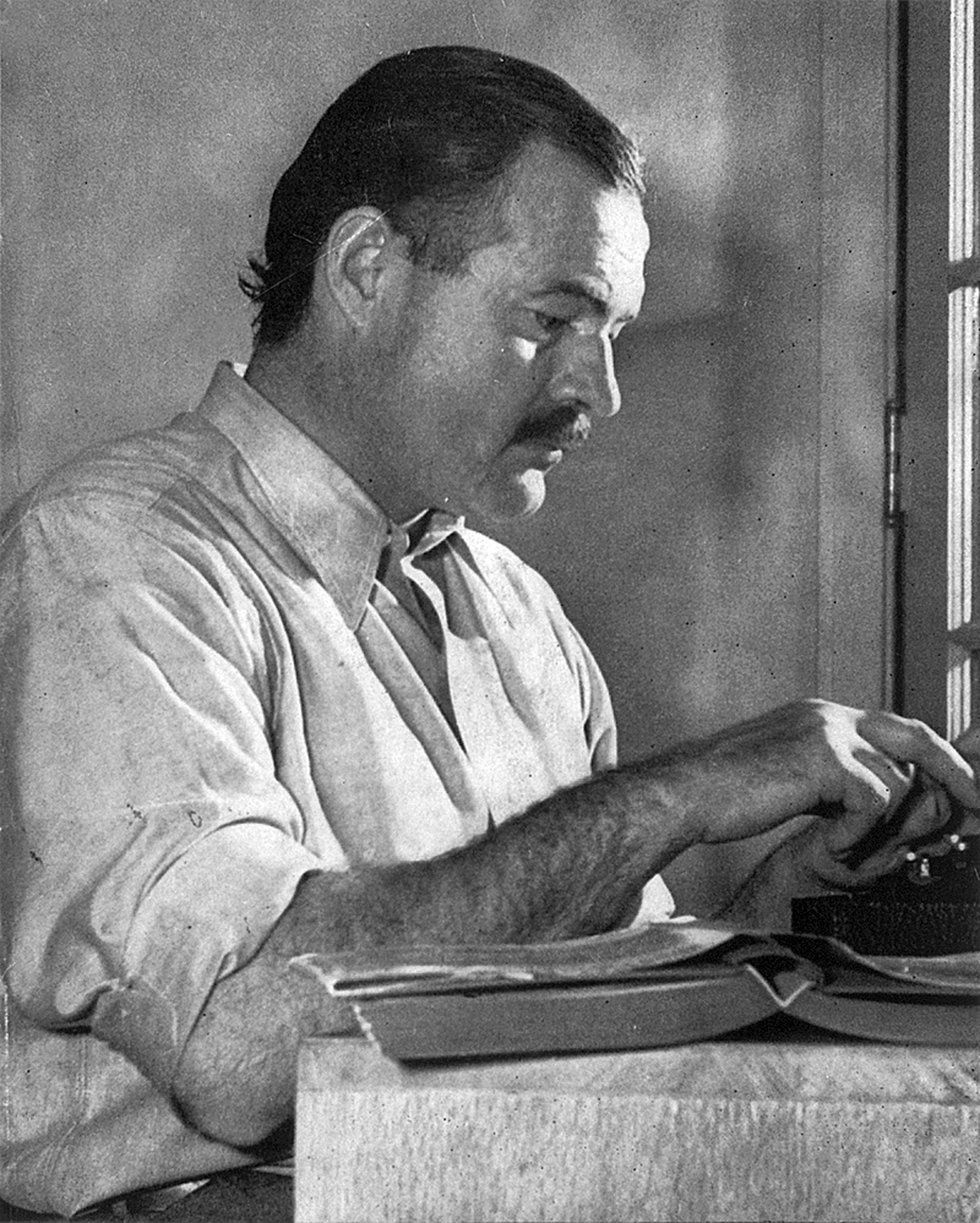Hemingway is interesting. Especially his writings, no other author has interested me the way Hemingway does with his writing technique. What makes him special, you ask? The answer will surprise you:
His grammar is horrendous.
You can check that out right now. Grab Hemingway's "A Farewell to Arms" and turn to Book 1, chapter 2. Now, look at how he describes the view of the place where he was stationed:
The next year there were many victories. The mountain that was beyond the valley and the hillside where the chestnut forest grew was captured and there were victories beyond the plain on the plateau to the south and we crossed the river in August and lived in a house in Gorizia that had a fountain and many thick shady trees in a walled garden and a wistaria vine purple on the side of the house.
Did you notice something? Did you notice the abundance of grammatical mistakes he made? Did you notice the lack of punctuations, conjunction misuse, loss of parallelism, and sudden shifts in structure all in the same run-on sentence? This paragraph, to an unknowing Composition professor, would have been trashed.
Yet, for Hemingway, his technique was highly praised. Is it because he stood from the ordinary? Or maybe, is it because his prose was more than that the English grammar rule book could contain?
Simplicity
You might find that his way of describing things is very succinct and simple. No flowery words, no "grammatical flex," almost like he was telling us exactly what he saw, down to the detail. It's almost like journalism, and you'd be right to say so!
According to Study.com, "his background included journalistic training, a style of writing that relies heavily on presenting the facts in a crisp and clear way and allowing dialogue or conversations to shine through…" In a way, he wrote the way we would normally talk or experience.
Imagine this, when you choose a red shirt for the morning, you probably did not go on an hour-long analysis on why the color red expressed your inner burning desire for Salsa. No, you probably chose the red shirt because it's the first one you saw in the dresser. And that's how he wanted to portray characters in his works: lively, real, and not over-the-top superficial.
The overuse of the word "and"
Another key feature in Hemingway's works is the overabundance of "ands" within his sentences. Pay attention to the previously mentioned sentence, particularly this part:
"… and there were victories beyond the plain on the plateau to the south and we crossed the river in August and lived in a house in Gorizia that had a fountain…"
Does it feel like a mouthful? Yes. But does it feel like a complete picture? Do you see victories on the plain as the narrator marches with his comrades across the river to a house with a fountain?
Hemingway has a strange way of chaining together events to make you see the whole picture at once, without wasting too many sentences. Instead of mastering his grammatical prowess, he instead opted for a less elegant, yet more effective form of description. After all, think about it, when we look at a scenery in a movie, we don't pause and analyze everything for every scene (unless you're me, weirdo). We just take in whatever catches our attention. Who cared if the house had 3 stories or more? What made it distinct was a fountain, and that's all the audience needs to know.
The floating iceberg
A writer's style," Hemingway said, "should be direct and personal, his imagery rich and earthy, and his words simple and vigorous."
Hemingway perfectly summed up his style with that quote, especially when he mentions the imagery. Imagery is one of Hemingway's strongest points, taking form as subtle details within his stories.
"The old man and the sea" was famous for its use of Christian imageries, while "Hills like White Elephants" was praised for its literal explosion of imageries.
An absolute perfectionist
Hemingway is obsessed with perfection. Take "the old man and the sea" for example. It is reported that he wrote and rewrote all, or portions, of The Old Man and the Sea more than two hundred times before he was ready to release it for publication.
Hemingway is a legendary writer. Though not many likes his style, I still think that he held more prose in the English language than any contemporary writers. After all, subtlety and cringiness don't fall far from each other, yet Hemingway could distinguish between them in his works, offering a mature portrayal of his subject matters.
Good or not, I know there's one thing we can agree on:
He is a master of the English language.



















